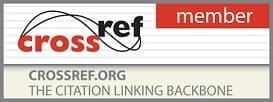
Printed Journal | Refereed Journal | Peer Reviewed Journal
2022, Vol. 4, Issue 2, Part A
A descriptive study to assess the prevalence of night eating syndrome and its association with depression among the students of UCON, Faridkot (Punjab)
Introduction: Night eating syndrome (NES) is described as “an eating disorder characterized by a delayed circadian pattern of food intake and includes evening hyperphagia and/or nocturnal awakening and ingestion of food two or more times per week”. Problematic eating behavior is largely observed in university students in whom depression might predict NES. Disruptions in mood, perhaps secondary to stressful life events or perceived stress among students, may trigger a coping response of overeating, most probably nocturnal eating.
Aim of The Study: The aim of the study is to assess the prevalence of Night Eating Syndrome and its association with depression among the students of UCON, Faridkot (Punjab).
Materials and Methods: The study was conducted at UCON hostel, Faridkot to assess the prevalence of Night Eating Syndrome and its association with depression among the students of UCON, Faridkot (Punjab). Convenience sampling technique was used to collect data from 100 students who were present at the time of data collection. Standardized Night Eating Syndrome Questionnaire to assess the prevalence of Night Eating Syndrome and Standardized Beck’s Depression Inventory to assess the level of depression were used.
Results: The study revealed that Night Eating Syndrome was prevalent among the study population. Majority of the students (54%) had Night Eating Syndrome, out of which (25%) Mild Night Eating Syndrome followed by (16%) had Moderate Night Eating Syndrome, (13%) had Severe Night Eating Syndrome and the rest (46%) did not have Night Eating Syndrome as per criteria. The study showed that the out of 100 students, (67%) had No depression as per the Standardized criteria of Beck’s Depression Inventory. Rest (33%) showed the symptoms of depression as per the Standardized criteria out of which (14%) had Mild depression, (10%) had borderline depression, (8%) had Moderate depression followed by (1%) who had severe depression. So, the prevalence is 33% or 33/100 population. A significant correlation was found between Night Eating Syndrome and Depression (p =0.0001). The study results showed that 33(33%) of the students had depression as per Beck's Depression Inventory, out of which 26 (78.3%) had Night Eating Syndrome. The findings of the study revealed significant correlation between Night Eating Syndrome and two socio-demographic variables, i.e., Religion (p=0.017) and BMI (p=0.021).
Pages : 32-37 | 505 Views | 261 Downloads
How to cite this article:
. A descriptive study to assess the prevalence of night eating syndrome and its association with depression among the students of UCON, Faridkot (Punjab). Int J Adv Res Community Health Nurs 2022;4(2):32-37. DOI: 10.33545/26641658.2022.v4.i2a.117
Related Journals
Related Journal Subscription





 Other Journals
Other Journals
